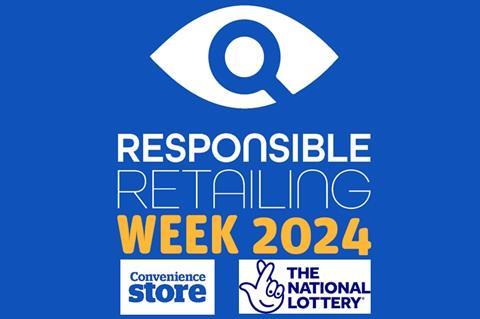
As part of Responsible Retailing Week 2024, Convenience Store spoke with Julie Brian, head of retail strategy and operations at Allwyn, to discuss its commitment to fostering responsible retailing among National Lottery retailers.
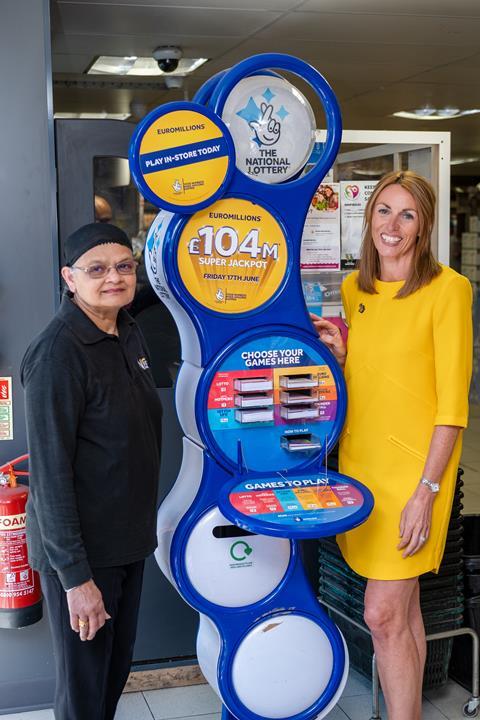
Allwyn took over as operator of the National Lottery in February following 29 years of Camelot at the helm, and while it has been National Lottery operator for less than a year, the framework for responsible retailing has been well-established. “Responsible Retailing is at the very heart of our approach to supporting retailers. Making sure our retail partners are fully informed and supported when it comes to selling National Lottery products in a safe and responsible way, is something we take very seriously at Allwyn.
“We provide regular guidance and information for training purposes through a variety of different touchpoints to ensure important responsible retailing messages are shared with all National Lottery retailers.”
She shared what Allwyn is doing to support retailers when it comes to being responsible. “We launched our brand new Retail Training Centre earlier this year to support independent store owners and their staff to be responsible National Lottery retailers with ‘always on’ digital training that’s available to them whenever suits them best– making it easier to regularly train staff in store. As well as documents containing key information about how to sell National Lottery games responsibly, the platform features engaging training modules on ‘Preventing Underage Play’ and ‘Minimising Excessive Play’. We’ll update this centrally with new and improved training over the coming months and years.
“On 1 October this year, we introduced a new Scratchcard limit in retail. This is part of our commitment to ensure The National Lottery remains a trusted and safe environment for our retail players. As retailers will know, purchase data shows that the vast majority of in-store players already buy far fewer Scratchcards than this at one time, so these players won’t see any difference when making their purchases. However, the new in-store cap will help to minimise the likelihood of any excessive play, while still giving players the opportunity to buy up to 10 games in one go to give as gifts - for example, for birthday, thank you or Christmas presents.”
While there may be some confusion that a scratchcard limit conflicts with a focus on gifting, Brian explains the strategies. “Giving a Scratchcard as a gift not only brings joy with the potential of winning a prize, it also helps raise vital funds for National Lottery-funded projects whenever a game is purchased. The ability to be able to choose from a range of different games and price points mean that Scratchcards make an ideal gift to slip into a card or be given alongside to supplement another present.
“All of our gifting campaign assets carry the ‘Gift Responsibly’ logo to remind players that, while Scratchcards make fun, last-minute gifts, they must be gifted responsibly. We want players to be reminded that they should only gift to those who are 18+ and those who would not be considered as vulnerable in any way.”
She added that there are ways of purchasing more for a celebration.
“The vast majority of people wishing to purchase a Scratchcard as a gift won’t need more than 10, but of course there will be some instances where they might need more, such as for a large party or celebration. In these cases, they would need to return later that day or on another occasion to purchase a further 10 until they have what they need, in the same way that they would need to for other restricted products - such as purchasing paracetamol.
“To help support our retailers, we provided each store with a support pack in preparation for the Scratchcard limit going live. This pack included a player-facing sticker and an A4 poster, so that retailers can refer to the signage if a customer challenges the limit. We have also included the 10 Scratchcard limit message within the legal lines on all Scratchcard advertising, as well as in an update to the Players’ Guide.”
Retailer challenges
She explained the challenges that retailers are facing on responsible retailing. “Over time, retailers have had to learn and adhere to a mounting number of new laws and regulations for a variety of products, which makes running a business in retail a very time-consuming and busy enterprise. It also means that keeping on top of regular staff training and implementing the safeguards needed to be a responsible retailer can be tricky. That’s why we support our retailers with regular communications, training material, store visits and calls to keep responsible retailing at the forefront in their minds.
Retail crime is rarely out of the headlines and while National Lottery products aren’t often the target of shoplifters, abuse can be an issue.
“With theft and aggression on the rise, retailers often face negative exchanges with customers, including when being asked for ID. While we don’t often hear about specific incidents in relation to National Lottery products, retailers should always be aware that some customers may not take kindly to that situation,” said Brian.
If a retailer or their staff is concerned about responsible sales, what’s their best course of action?
“Our advice to retailers would always be to ensure their store has adequate policies in place to protect staff and make sure all 18+ age to play signage and Scratchcard limit assets are on display, so that customers might spot them before they attempt to purchase a National Lottery product or so that retailers can point to these items, if needed.
“In support of those who are concerned that they may be playing excessively, retailers are encouraged to print a ‘Healthy Play’ slip via their terminal; this can be helpful if retailers are worried about having a difficult conversation. This slip resembles a draw game ticket, so is a discreet way of passing on both GamCare’s details and information on where to access further support via our standalone Responsible Play webpage. “
What is Allwyn’s approach to addressing underage play when it comes to National Lottery products?
“We do everything we can to ensure that National Lottery products are not accessible or appealing to individuals under the age of 18. We regularly remind retailers of their legal responsibility to not sell National Lottery products to anyone under the age of 18. We also check compliance of this via our Operation Guardian mystery shopper programme.
“As a responsible business, we also put measures in place to ensure that we’re not only signposting the legal age limit in store, online and in our advertising, but we also make sure that our ads and games are specifically designed not to appeal to those who are underage.”
Brian also reminded retailers of the risks of not being responsible when it comes to selling National Lottery products. “First and foremost, National Lottery retailers run the risk of breaking the law by selling National Lottery tickets to anyone under the age of 18. As a secondary consequence, retailers who are suspected of underage selling will be investigated by Allwyn and could have their lottery terminal removed.
“Retailers also have a responsibility not only to comply with their legal and contractual obligations, but also to society as a whole. Encouraging or facilitating underage or excessive play could lead to long-term individual or community issues. We know that the vast majority of our retail partners pride themselves on being at the centre of their community, so we will continue to do everything we can to support them in protecting their customers and our players.”
She provided more detail about its mystery shop programme, Operation Guardian which comprises three different types of store visits - each designed to check that retailers have the right knowledge, tools and safeguards in place to prevent underage play and minimise excessive play.
These are:
- Underage Play Mystery Shop (previously Operation 18) - this involves someone who looks under the age of 18 attempting to buy any National Lottery product in store. Retailers must successfully challenge the mystery shopper for a correct form of ID to pass. A retailer must pass this check within three store visits or this could result in further action being taken.
- Excessive Play Mystery Shop - this involves a mystery shopper asking for support information due to concerns that they, or someone they know, is playing excessively. To pass, retailers must either print a handout via the Healthy Play button on the terminal, or direct them to the Players’ Guide for support details. And with the recent introduction of the new 10 Scratchcard limit, a mystery shopper will try to purchase more than 10 in a single transaction. To pass, retailers must refuse to sell more than 10 and let the customer know about the new limit.
- Healthy Play Knowledge Check - this is a new initiative to check retailers have the right level of healthy play knowledge. A representative will introduce themselves and ask a range of questions on responsible play and operational topics to ensure stores are maintaining best practice. If the answers are unknown, staff will be provided with extra support during the visit to improve their knowledge.
Excessive play and what to do
Thanks to the rigorous controls, checks and balances that we’ve put in place, it’s widely recognised that the inherent risk of problem play associated with National Lottery games is very low. This is backed up by Gambling Commission, Health Survey for England and GamCare data.
However, because of our scale, we must continue to do everything we can to reduce consumer harm even further wherever possible - and we take our responsibilities in this area very seriously. Our long-term strategy is to encourage lots of people to
play, but to only spend relatively small amounts. The success of this strategy can be evidenced by the fact that, according to the La Fleur’s World Lottery Almanac 2023, The National Lottery is ranked just 66th in the world in terms of per capita spend, despite being the seventh largest lottery in the world in terms of sales.
We provide retailers with a whole range of training materials in different formats to help cater for all types of outlets and their staff. For example, our Retailer Training Centre provides responsible retailing guidance which can be printed off or viewed via a mobile or tablet device. The digital training modules are also compulsory for all new stores before they can start selling National Lottery products.
For excessive play concerns, we advise retailers to follow the steps of ‘See, Say, Support’. Retailers are reminded to look out for certain types of behaviours that a player may exhibit which could indicate problem play and to let them know that there is help available.






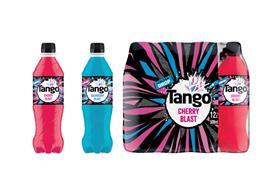

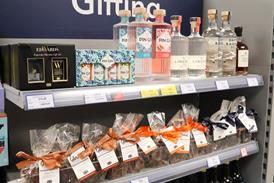

![WG-4003[58]](https://d2dyh47stel7w4.cloudfront.net/Pictures/274x183/4/5/1/353451_wg400358_6083.jpg)

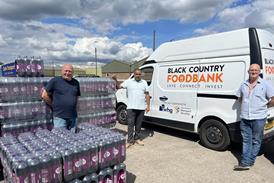




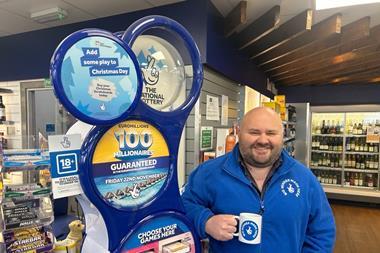

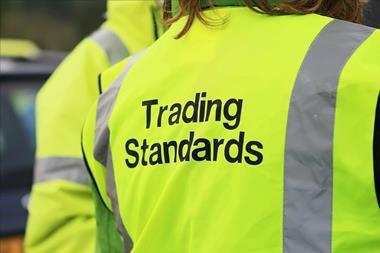

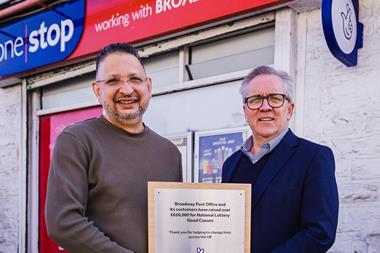

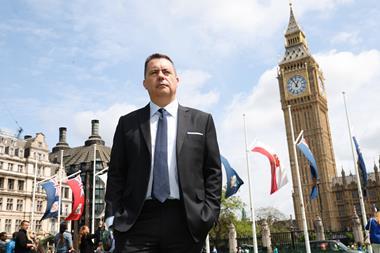

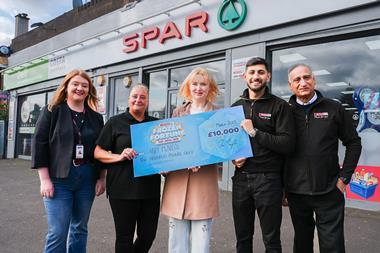
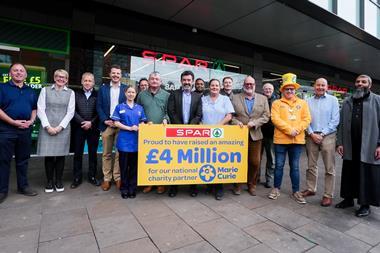
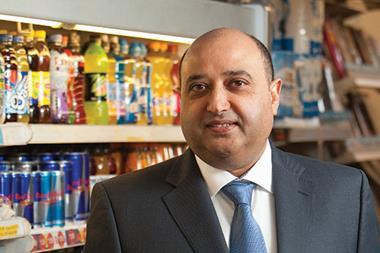
No comments yet